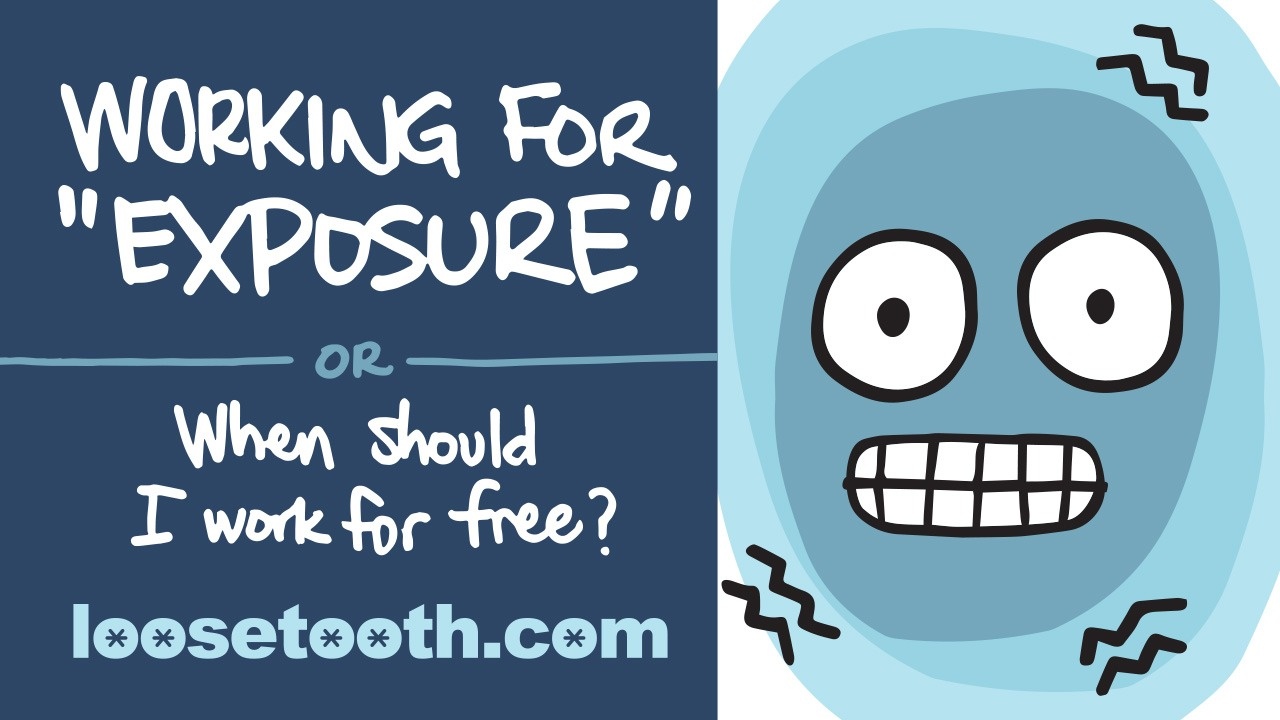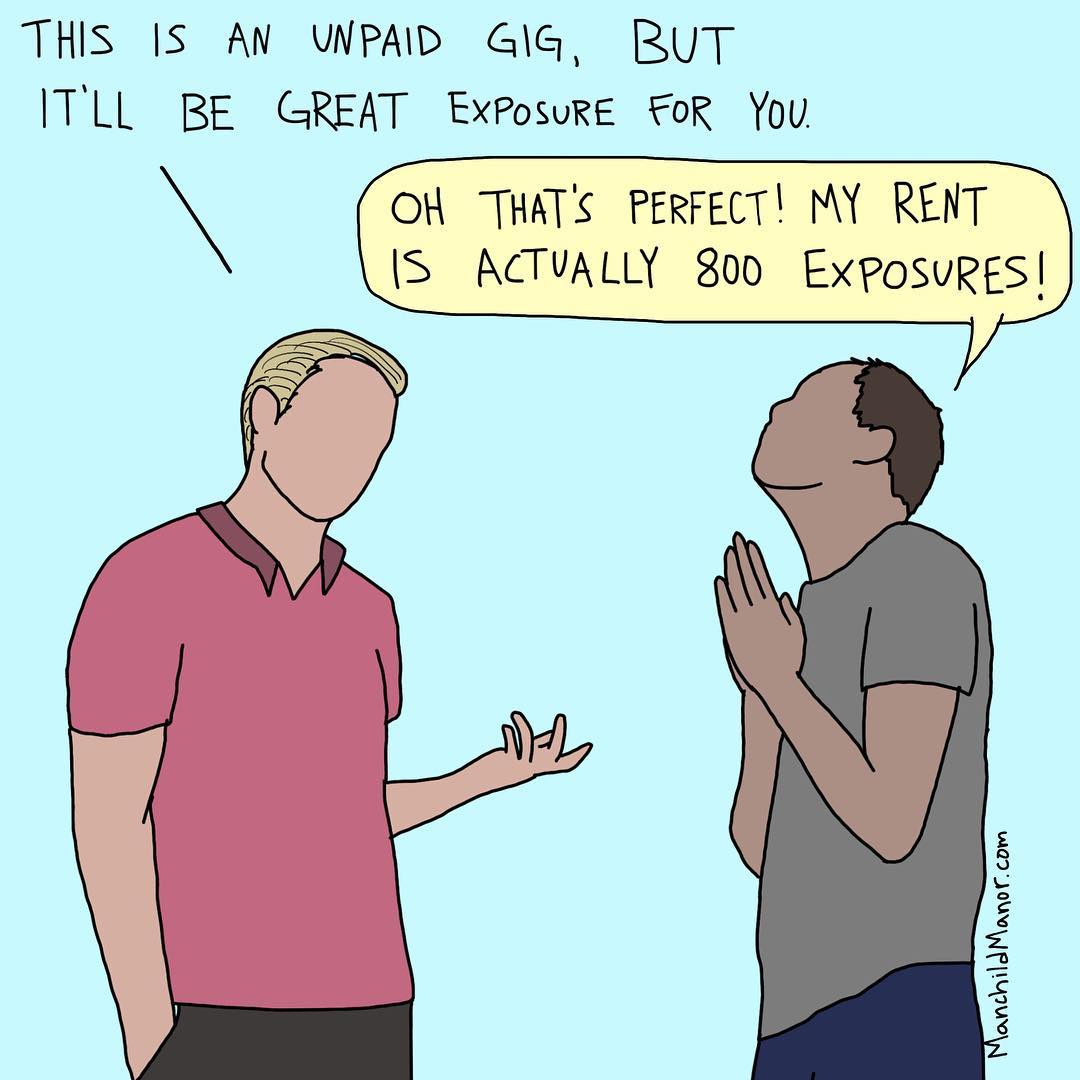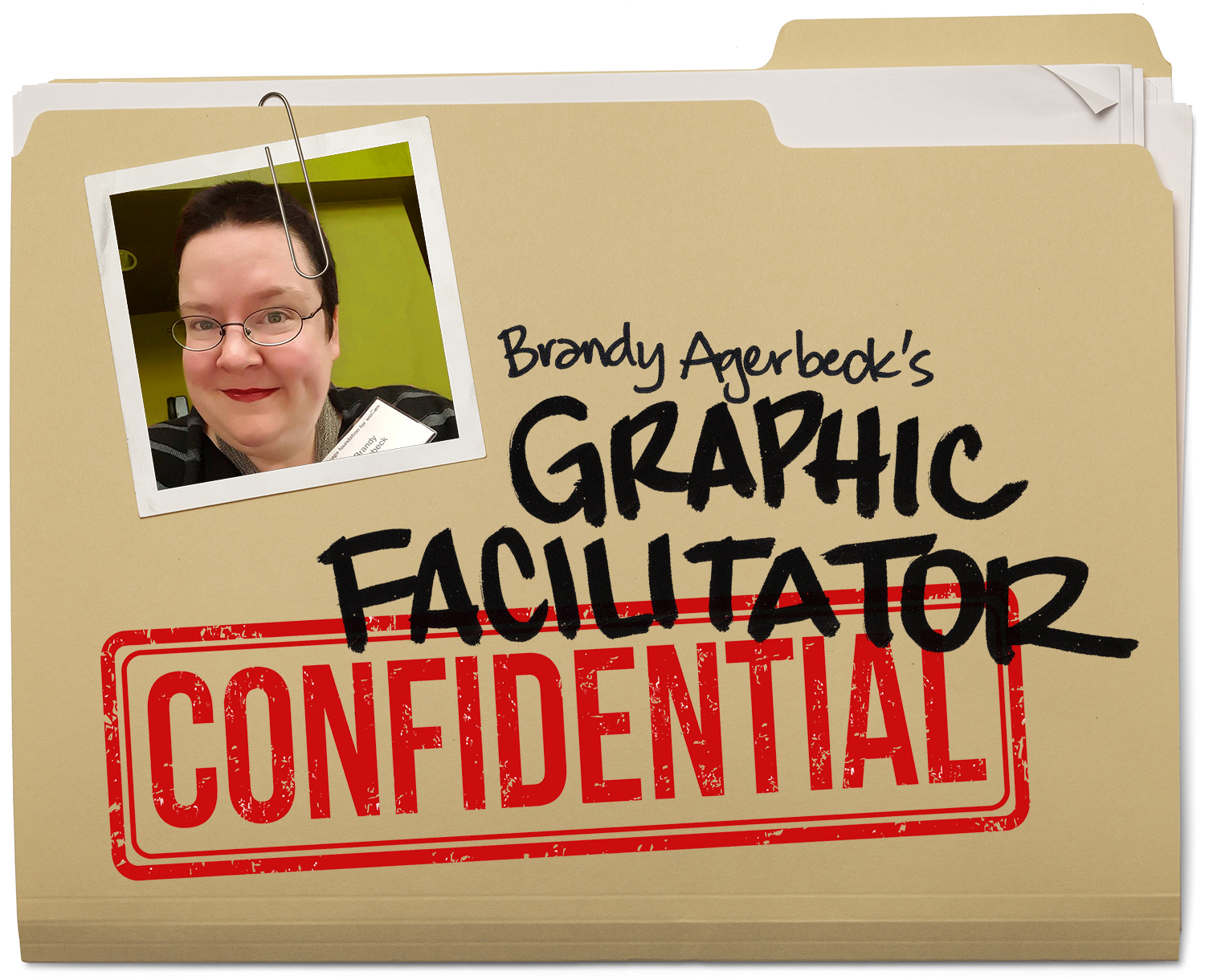When should I work for free?

Before my nuanced answer below, my quick, flippant answer is "working for exposure leads to hypothermia."
My next answer?
"Never."
All right, all right, if you are just starting your graphic facilitation practice, here's my answer from the long view of 25+ years.
What follows also applies to design, photography, illustration, writing... all sorts of creative work -- but graphic recording, visual notetaking, scribing is still a relatively unknown role. And getting the most useful practice in this role can't happen in isolation.
There is ONE major reason to work for free as a graphic facilitator.
Let me say this loudly and clearly --
☝️ To build out your initial portfolio.
We need examples of our work to get more work. Even though the value of our work is the live process, not the final artifact, portfolio pieces are a standard across contract work that helps potential clients decide to reach out to us. Ideally hire us.
I built out my initial portfolio waaaay back when, around 2000, by going to public programs and doing sketchnotes. Before there was the word sketchnotes.
Very early on, I would take an occasional graphic facilitation project "for exposure."
The results?
Every. Single. Stinking. Time:
- I wasn't treated as a professional during event.
I often say, "When you give someone a bargain, you are treated like a bargain."
Examples:- Poor planning
- Not being introduced
- Lack of communication with organizers during the event.
- No consideration of my set up, hanging my drawings over the event, or distributing my work after the event.
- Distribution without credit.
- Nothing came of it.
Even when I was on the ball and got a proper introduction, credit in printed materials, etc. - I learned that the person asking me to work for free was nearly always a yahoo. 🚩 Instant red flag.
Those who weren't yahoos would approach me with what they could do for me as other compensation.
Sure, if part of building your business is learning what not to do, and how you don't want to be treated, "pay your dues" by not getting paid.
But if you do, you are signaling to everyone that this work isn't worthy of being paid for.
That damages all of us.
As I wrote this, I did come up with a second reason to work pro bono.
✌️ To get in-the-room, on-your-feet,
in-front-of-the-group experience.
In BOTH cases, portfolio-building and practice, treat the project exactly as you would a paid project:
☑️ A signed contract. While that may seem silly without pay, you still have the opportunity to outline scope of work, credit lines, and distribution rights. Get permission to promote your business sharing your work.
☑️ An invoice stating your normal fees that have been waived. Establishing your worth.
☑️ A proper prep call to set you up for success.
☑️ Be an active part of the facilitation team the day of. Do not treat yourself like a bargain, by staying off to the side.
☑️ Signing your work with contact details and follow through of distribution.
This post originated from conversation in the Graphic Facilitation group on Facebook. Requests for pro bono "opportunities" are plentiful. Some credit to those who point out that there is no pay up front.
Colleagues shared their own third reason.
👉 To volunteer your time and skills
to causes you believe in.
If you choose to do this, also make it a portfolio piece and treat it like a paid project. And depending on local tax laws, you may be able to claim your fees as a donation.
Personally, I chose early on to keep my professional work separate from my volunteer work. It is what works best for me.
Lastly, I'll share these favorite memes on the topic:
From ManchildManor:

And this new classic from Laura Jane Barnes/Woah, Dude:
[contains swears]
Want to learn more about business-building?
Check out: 


